International
Defiant Trump vows to stay course as countries scramble over tariffs

Defiant Trump vows to stay course as countries scramble over tariffs
US President Donald Trump has defended sweeping tariffs on imports that sent shockwaves through global stock markets, saying “sometimes you have to take medicine to fix something”.
Speaking to reporters aboard Air Force One late on Sunday, he said jobs and investment would return to the US to make it “wealthy like never before”.
Trump’s top officials stressed that the tariffs – announced last week – would be implemented as planned, playing down recession fears.
Just hours after Trump’s comments, stock markets plunged in Asia early on Monday, with Japan’s Nikkei 225 dropping by 6.3%, and Hong Kong’s Hang Seng losing 9.8%.
On Friday, all three major stock indexes in the US fell more than 5%, while the S&P 500 dropped almost 6% in the worst week for the US stock market since 2020.
Saudi Arabia’s stock exchange – which trades on Sundays – ended nearly 7% lower, its biggest daily loss since the pandemic, state-owned media said.
US banking giant JP Morgan has predicted a 60% chance of a US and global recession following Trump’s tariffs announcement.
Speaking aboard the presidential plane on a flight back to Washington DC, Trump said European and Asian countries were “dying to make a deal”.
He also pushed back against a reporter’s inquiry about American consumers’ “pain threshold” as fears of steep price increases and a market recession grow.
READ ALSO:
- Troops destroy terrorists hideout in Taraba, kill 3 bandits
- Ban smartphones, social media in varsities, don advises authorities
- Nurse leaves US, seeks new life in Nigeria, says everything not money
“I think your question is so stupid,” he told the reporter. “I don’t want anything to go down. But sometimes you have to take medicine to fix something.”
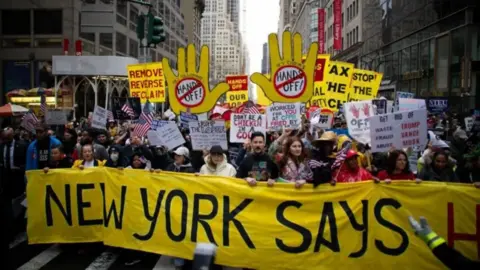
Anti-Trump protests were held in dozens of US cities, in part over tariffs
In a series of TV interviews earlier on Sunday, Trump’s top officials also played down recent stock market falls.
Treasury Secretary Scott Bessent told NBC’s Meet the Press programme that there was “no reason” to expect a recession as a result. “This is an adjustment process,” he added.
Bessent also argued that Trump had “created maximum leverage for himself, and more than 50 countries have approached the administration about lowering their non-tariff trade barriers, lowering their tariffs, stopping currency manipulation”.
Meanwhile, Commerce Secretary Howard Lutnick told CBS News that the 10% “baseline” tariff on all imports, which came into effect a day earlier, will definitely “stay in place for days and weeks”.
Lutnick went on say the steeper reciprocal tariffs were still on track.
Higher custom tariffs on roughly 60 countries, dubbed the “worst offenders”, are due to come into effect on Wednesday 9 April.
When asked about these tariffs, Lutnick said they were coming. “[Trump] announced it and he wasn’t kidding,” he said.
Lutnick also defended tariffs imposed on two tiny Antarctic islands populated only by penguins, saying it was to close “loopholes” for countries such as China to “ship through”.
Elsewhere, Indonesia and Taiwan have said over the weekend that they will not impose retaliatory tariffs after the US announced a 32% levy on imports from both countries.
Vietnam’s leader, To Lam, has asked Trump to delay a 46% duty on Vietnamese exports to the US by “at least 45 days”, according to a letter seen by news agency AFP and the New York Times.
However, China announced on Friday that it will impose a 34% tariff on all US imports, beginning on Thursday 10 April.
UK Prime Minister Sir Keir Starmer warned on Saturday that “the world as we knew it has gone”.
Starmer said the UK government would keep pushing for an economic deal with the US that avoided some of the tariffs.
A Downing Street spokesman added Starmer and new Canadian Prime Minister Mark Carney agreed in a phone call that “an all-out trade war is in no-one’s interest”.
On Monday, Israeli Prime Minister Benjamin Netanyahu is expected to meet Trump for trade talks in Washington DC.
Netanyahu, speaking to reporters as he boarded a plane-bound for the US, said he would be “the first international leader that is meeting with Trump” since the new tariffs were introduced.
He said this showed their “personal connection and the connection between our countries that is so essential in this time”.
Anti-Trump protests were held in cities across the US over the weekend, in the largest nationwide show of opposition since the president took office in January.
Hundreds of thousands of people turned out in Boston, Chicago, Los Angeles, New York and Washington DC, among other cities, with protesters citing grievances with Trump’s agenda ranging from social to economic issues.
Defiant Trump vows to stay course as countries scramble over tariffs
BBC
International
Despite trade spat with US, China exports rises 12.4%
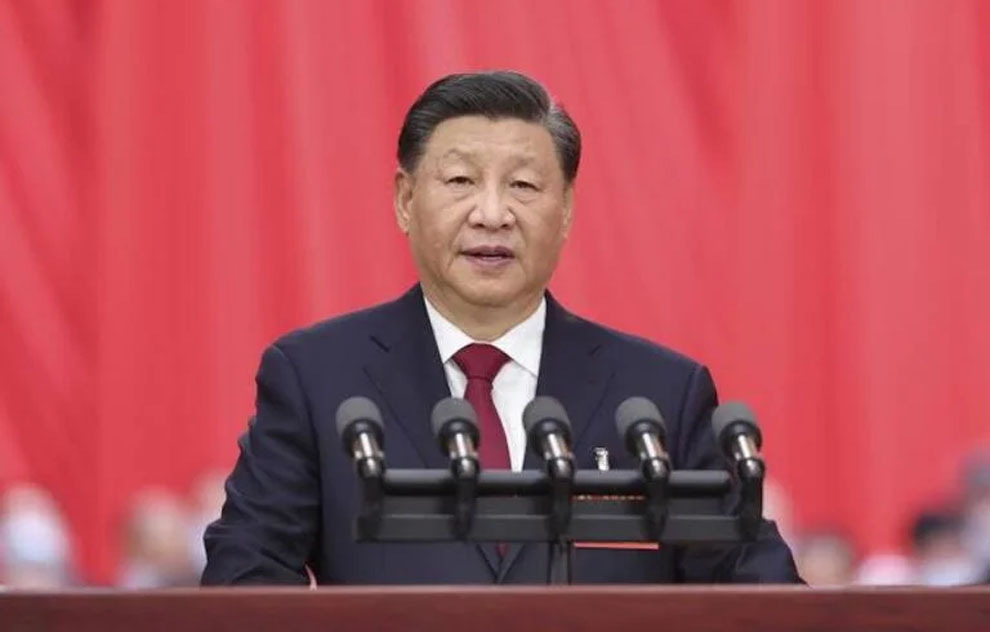
Despite trade spat with US, China exports rises 12.4%
China announced on Monday that its exports surged by 12.4% in March compared to the same period last year, defying forecasts and demonstrating resilience amid growing trade tensions with the United States.
According to figures released by the General Administration of Customs, the increase in outbound shipments more than doubled Bloomberg’s earlier prediction of 4.6%.
This performance comes as businesses rushed to beat a new wave of US tariffs introduced by President Donald Trump on his so-called “Liberation Day.”
Beijing and Washington remain entangled in a high-stakes trade standoff that has seen tit-for-tat tariff hikes. US tariffs on Chinese imports have risen to 145 percent, with Beijing retaliating by imposing a 125 percent levy on American goods.
Imports into China during the same period dropped by 4.3 percent. While still negative, this was a slight improvement from earlier months and suggested an uptick in domestic consumption.
Beijing reported that the United States was still China’s largest single export destination from January to March, accounting for $115.6 billion in trade. Remarkably, even as tensions escalated and new tariffs were introduced in March, exports to the US climbed roughly nine percent year-on-year.
China has set an annual growth target of around five percent, aiming to shift its focus towards domestic demand as the main engine of economic expansion. However, Trump’s trade war is emerging as a fresh challenge to this recovery strategy.
READ ALSO:
- Tinubu not in France for medical attention – Presidency
- Eedris Abdulkareem: I didn’t attack Seyi Tinubu with my new song
- Our position on Tinubu/Shettima 2027 campaign billboards – Presidency
The US government appeared to ease pressure slightly on Friday by announcing exemptions for several tech products, including smartphones, laptops, and semiconductors—key categories in which China plays a dominant role.
Analysts said the March export surge was likely driven by a wave of frontloading by companies aiming to ship goods before the April 2 tariffs kicked in.
“The strong export data reflect frontloading of trade before the US tariffs were announced,” said Zhiwei Zhang, President and Chief Economist at Pinpoint Asset Management. “China’s exports will likely weaken in the coming months as the US tariffs skyrocket,” he added.
Zhang also noted that “The uncertainty of trade policies is extremely high.”
Julian Evans-Pritchard, head of China economics at Capital Economics, added, “In anticipation of even higher duties, demand from US importers continued to hold up fairly well” in March. “But shipments are set to drop back over the coming months and quarters,” he warned. “It could be years before Chinese exports regain current levels.”
Despite efforts to boost the economy, China is still battling weak consumption and an ongoing debt crisis in the property sector. Last year, authorities introduced aggressive policies—including interest rate cuts, relaxed home-buying rules, higher debt ceilings for local governments, and market support measures.
However, enthusiasm faded when no concrete figures or timelines were released for a much-anticipated economic stimulus.
As the trade war intensifies, China’s ability to maintain export growth and achieve its economic goals will remain under close international scrutiny.
Despite trade spat with US, China exports rises 12.4%
International
US, Iran hold ‘constructive’ first round of nuclear talks
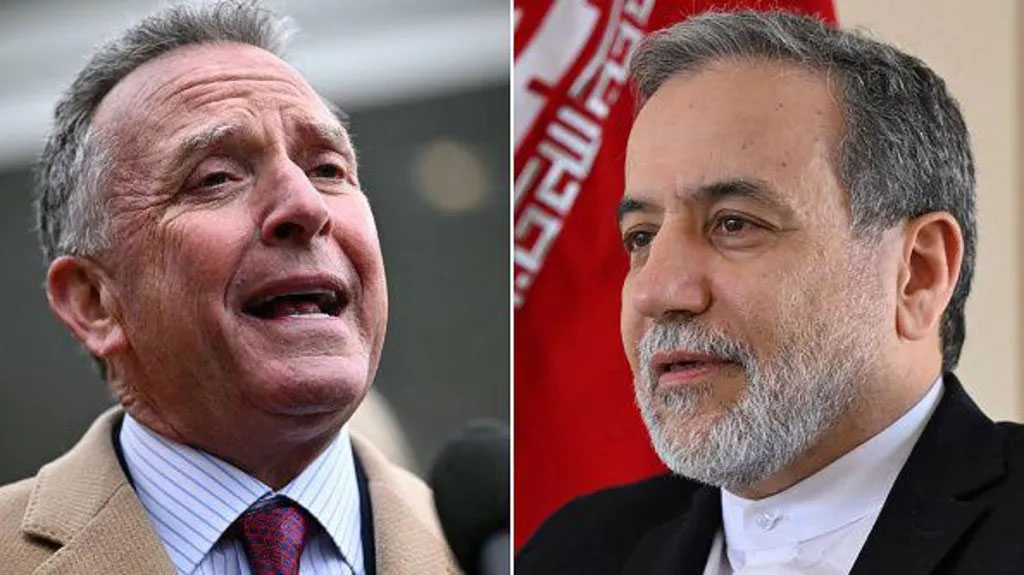
US, Iran hold ‘constructive’ first round of nuclear talks
Iran and the US have concluded a first round of talks in Oman over Tehran’s nuclear programme – the highest-level meeting between the two nations since 2018.
Both countries described the meeting as “constructive” and confirmed a second round of discussions will take place next week – with the US hailing the “direct communication” as being key to striking a possible deal.
President Donald Trump pulled the US out of a previous nuclear agreement between Iran and world powers in 2018, and has long said he would make a “better” deal.
The talks are seen as an important first step in establishing whether a deal can be done.
At two-and-a-half hours, the first meeting was brief, reportedly respectful – and set the stage for a second round.
That was probably as good as it could get when Iranian and US officials sat down in Muscat, the capital of Oman – whose top diplomat mediated the primarily indirect negotiations.
They were the most significant talks since Trump pulled the US out of the Iran nuclear deal of 2015 during his first term in office.
The verdict of Iran’s lead negotiator, Foreign Minister Abbas Araghchi, was positive.
“In my opinion, as the first meeting, it was a constructive meeting held in a very peaceful and respectful environment, because no inappropriate language was used,” he told Iranian state TV.
His diplomatic tone suggests the US team led by Trump’s envoy Steve Witkoff did not reiterate some of the president’s threats that Iran would face “great danger” if this dialogue did not succeed. He has repeatedly warned of possible military strikes.
READ ALSO:
- 2025 UTME: JAMB releases mock results
- Trump exempts smartphones, computers from new tariffs
- Gaza hospital hit by Israeli strike, Hamas-run health ministry says
This meeting ran with the delegations in separate rooms, relaying messages through Oman’s foreign minister, Badr bin Hamad al-Busaidi.
Witkoff, who is leading the US delegation, had previously only spoken of meeting face-to-face.
But Araghchi and Witkoff did speak for a few minutes in the presence of Busaidi – not the direct talks US officials said would happen but what could be a small but significant opening.
Iran, mindful of pressure from hardliners at home, underlined how limited their face-to-face exchange was, with no photographs taken.
In a statement following the talks, the White House said the discussions “were very positive and constructive”, noting that Witkoff had emphasised to Iran that he had instructions to resolve the adversaries’ “differences through dialogue and diplomacy, if that is possible”.
“These issues are very complicated, and special envoy Witkoff’s direct communication today was a step forward in achieving a mutually beneficial outcome,” the statement added.
Araghchi had said ahead of the discussions that his country wanted a “fair agreement”.
After the talks concluded, he said discussions next week may not happen in Oman, but would still be mediated by the Middle Eastern nation. The White House said they would take place next Saturday.
“Neither we, nor the other party, want fruitless negotiations, discussions for discussions’ sake, time wasting or talks that drag on forever,” Araghchi told Iranian state television.
The most important issue at stake is what kind of deal each side would be willing to accept.
Trump sent a letter to Iran’s supreme leader via the United Arab Emirates last month, saying he wanted a deal to prevent Iran from acquiring nuclear weapons and to avert possible military strikes by the US and Israel.
Iran hopes for a deal to limit, but not dismantle, its nuclear programme in exchange for sanctions relief.
An unnamed source in Oman told news agency Reuters that the talks would seek to de-escalate regional tensions and secure prisoner exchanges.
READ ALSO:
- Massilia Motors launches new Mitsubishi L200 with low fuel consumption, advanced engineering
- London mother sentenced to life in prison for drowning two sons
- LASRRA, LASDA to launch strategic documentation drive for Lagos diaspora database
Trump revealed the talks would take place during a visit by Benjamin Netanyahu to the White House on Monday. The Israeli prime minister said on Tuesday that both leaders had agreed that Iran “will not have nuclear weapons”.
Netanyahu has called for a “Libya-style deal”, referring to the north African nation completely dismantling its weapons programme in an agreement reached with Western powers in 2003. That would be completely unacceptable to Iran.
Iran insists its nuclear activities are entirely peaceful and that it will never seek to develop or acquire nuclear weapons.
Iranian officials have made it clear the negotiations will focus only on its nuclear programme, not its broader defence capability, such as its ballistic missile programme.
Ahead of the talks, Trump said on Friday that he wanted Iran “to be a wonderful, great, happy country – but they can’t have nuclear weapons”.
Trump has warned that the US would use military force if a deal was not reached, and Iran has repeatedly said it will not negotiate under pressure.
But this process is taking place under immense pressure.
Even as preparations were under way to arrange this first meeting, the US moved more warships and stealth bombers to the region and imposed more sanctions.
The US president told reporters in the Oval Office on Monday it would “be a very bad day for Iran” if the talks were unsuccessful.
Iran insists its nuclear activities are entirely peaceful and that it will never seek to develop or acquire nuclear weapons.
However, since Trump pulled out of the 2015 agreement – which expires later this year – Iran has increasingly breached restrictions imposed by the existing nuclear deal in retaliation for crippling US sanctions reinstated seven years ago, and has stockpiled enough highly-enriched uranium to make several bombs.
Under the terms of the 2015 deal, Iran agreed to only enrich uranium up to 3.67% purity for the next 15 years.
In February, the International Atomic Energy Agency (IAEA) nuclear watchdog reported that Tehran had stockpiled uranium enriched to 60% purity and could swiftly move to 90%, which would be weapons-grade.
The 2015 nuclear deal took nearly two years of intensive negotiations. At the start of this new effort to reach an agreement, Iran’s programme is far more developed and complex, and the wider region is far more volatile.
US, Iran hold ‘constructive’ first round of nuclear talks
BBC
International
Trump exempts smartphones, computers from new tariffs

Trump exempts smartphones, computers from new tariffs
US President Donald Trump’s administration has exempted smartphones, computers and some other electronic devices from “reciprocal” tariffs, including the 125% levies imposed on Chinese imports.
In a notice, US Customs and Border Patrol said that the goods would be excluded from Trump’s 10% global tariff on most countries and the much larger Chinese import tax.
It marks the first significant reprieve of any kind in Trump’s tariffs on China, with one trade analyst describing it as a “game-changer scenario”.
Late on Saturday, while travelling to Miami, Trump said he would give more details of the exemptions at the start of next week.
“We’ll be very specific,” he told reporters on Air Force One. “But we’re taking in a lot of money. As a country we’re taking in a lot of money.”
The move came after concerns from US tech companies that the price of gadgets could skyrocket, as many of them are made in China.
Exemptions – backdated to 5 April – also include other electronic devices and components, including semiconductors, solar cells and memory cards.
READ ALSO:
- Gaza hospital hit by Israeli strike, Hamas-run health ministry says
- Massilia Motors launches new Mitsubishi L200 with low fuel consumption, advanced engineering
- London mother sentenced to life in prison for drowning two sons
“This is the dream scenario for tech investors,” Dan Ives, who is the global head of technology research at Wedbush Securities, posted on X. “Smartphones, chips being excluded is a game-changer scenario when it comes to China tariffs.”
Big tech firms such as Apple, Nvidia, Microsoft and the broader tech industry can breathe a huge sigh of relief this weekend, he added.
The White House indicated the exemptions were made to ensure companies had more time to move production to the US.
“President Trump has made it clear America cannot rely on China to manufacture critical technologies such as semiconductors, chips, smartphones, and laptops,” White House Press Secretary Karoline Leavitt said in a statement.
“At the direction of the president, these companies are hustling to onshore their manufacturing in the United States as soon as possible.”
Trump, who is spending the weekend at his Florida home, told reporters on Friday he was comfortable with the high tariffs on China.
“And I think something positive is going to come out of that,” he said, touting his relationship with Chinese President Xi Jinping.
These electronic goods are still subject to the 20% tariff on China related to fentanyl, White House Deputy Chief of Staff on Policy Stephen Miller posted on X.
Some estimates suggested iPhone prices in the US could have as much as tripled if costs were passed on to consumers.
The US is a major market for iPhones, while Apple accounted for more than half of its smartphones sales last year, according to Counterpoint Research.
It says as much as 80% of Apple’s iPhones intended for US sale are made in China, with the remaining 20% made in India.
Like its fellow smartphone giant Samsung, Apple has been trying to diversify its supply chains to avoid an over-reliance on China in recent years.
India and Vietnam emerged as frontrunners for additional manufacturing hubs.
As the tariffs took effect, Apple reportedly looked to speed up and increase its production of India-produced devices in recent days.
Trump had planned for a host of steep tariffs on countries around the world to take effect this week.
But on Wednesday he announced he would implement a 90-day pause for countries hit by higher US tariffs – except China, whose tariffs he raised to 145%.
Trump said the tariff increase for China was because of the country’s readiness to retaliate with its own 84% levy on US goods.
In a dramatic change of policy, Trump said all countries that had not retaliated against US tariffs would receive the reprieve – and only face a blanket tariff of 10% – until July.
The White House then said the move was a negotiating tactic to extract more favourable trade terms from other countries.
Trump has said his import taxes will address unfairness in the global trading system, as well as bring jobs and factories back to the US.
Trump exempts smartphones, computers from new tariffs
BBC
-

 metro2 days ago
metro2 days agoKidnapping: Our lives are hanging by a thread, residents of Igbogbo-Baiyeku communities in Lagos cry out
-

 International3 days ago
International3 days agoUS announces new visa requirements for Nigerian applicants
-

 International2 days ago
International2 days agoUS embassy announces new visa interview requirements for Nigerian applicants
-

 Sports2 days ago
Sports2 days agoBreaking: Former Super Eagles coach Christian Chukwu passes away at 74
-
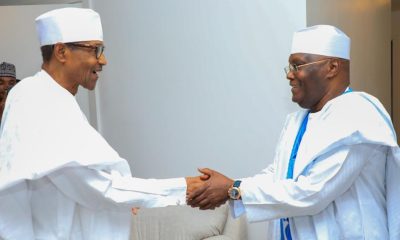
 Politics3 days ago
Politics3 days agoAtiku leads Tambuwal, El-Rufai, others to Buhari as 2027 election draws near
-

 metro3 days ago
metro3 days agoIbadan Pastor ends 30-year-marriage over sex dispute with wife
-

 metro3 days ago
metro3 days agoKemi Olunloyo angry, disowns family after father’s death
-
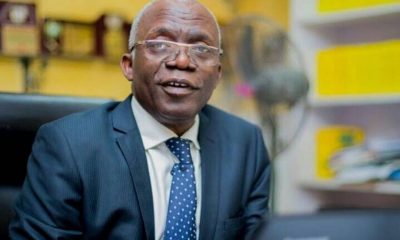
 metro3 days ago
metro3 days agoDefamation: Falana urges Akpabio to sue without involving police









